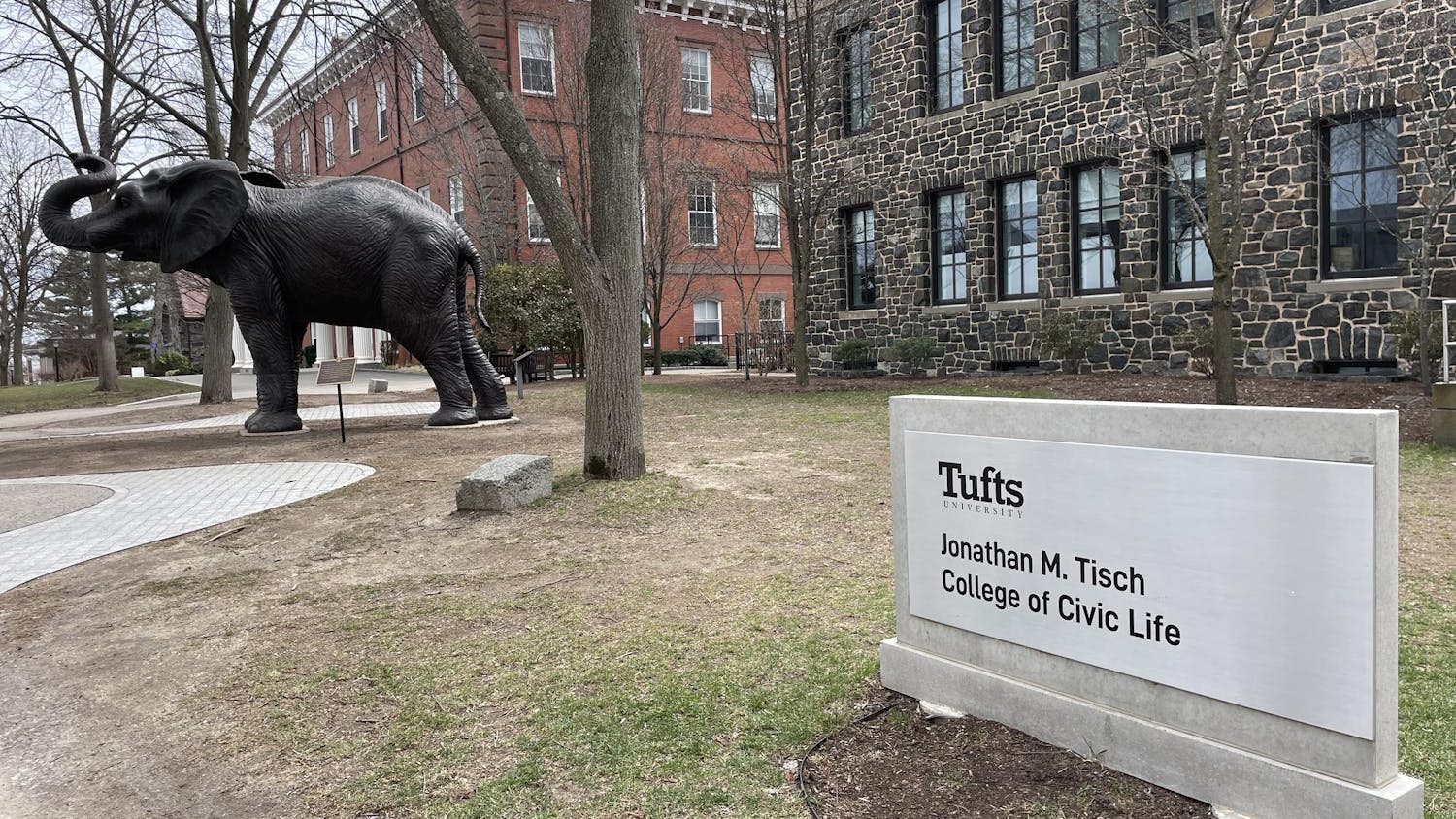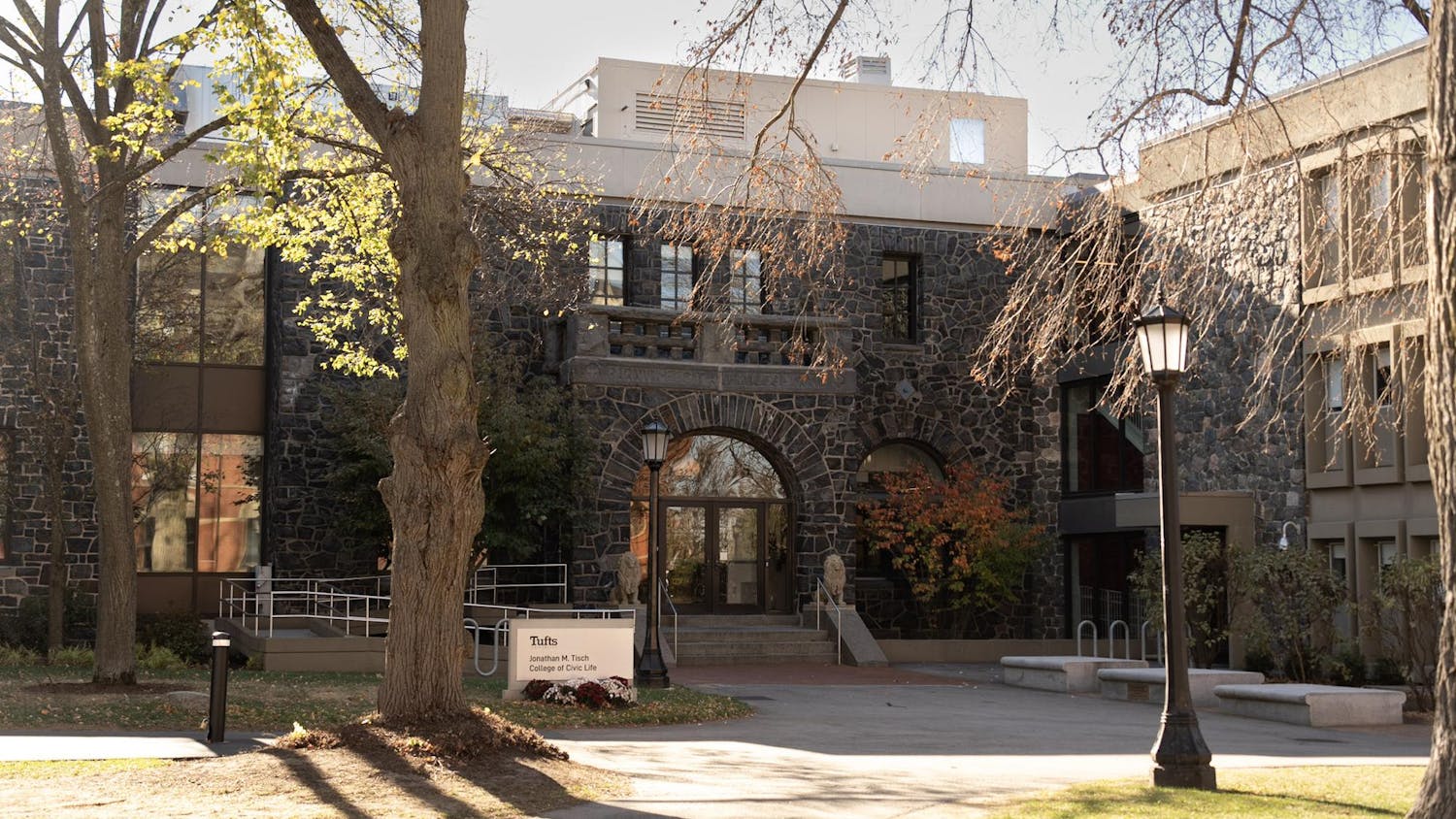Tufts first-year students Jesse Kitumba and Thomas Yi founded The Political Union, a campus club that will serve as a forum for structured, nonpartisan academic debate.
“We exist to discuss and debate political issues today, and we want it to be a space where we can academically and intellectually challenge ourselves and others,” Yi said. “We’re going to be more confined to the political [topics].”
“There’s a lack of space for structured academic debate,” Yi said.
Will Shachar, a first-year student who attended the general interest meeting, said that he thinks The Political Union will “be a very good opportunity to talk face to face.”
Kitumba added they want members to debate topics like free speech and questions like “How should we learn what’s best for American transit, foreign policy? Where should America invest its resources?”
The debates will have a more casual structure than traditional debates, with three to four people on either side of an issue and audience participation, rather than with only two people on each side and no audience participation.
“You don’t have to spend every week preparing for [the debates],” Shachar said. “I think it’s going to lend itself very nicely to more open discussions trying to come to some new understanding, rather than the competition found in today’s society.”
In addition to academic debates, they are hoping to host speakers and give club members a chance to “challenge speakers, but also be challenged,” said Kitumba.
“I don’t think we’re necessarily trying to be controversial or stir up anything. I think that might be part of the process, but the whole point is to be a space of free speech, of toleration and to allow others to express their own views and academically challenge themselves and others,” Yi said.
Kitumba and Yi are hoping their new club will be a space where students can challenge themselves and others.
“It’s just a space for people to think, to reason, to argue and then not be judged for it, and hopefully learn and take something from it,” Yi said.
While other debate groups already exist on campus, Shachar and the club founders believe that The Political Union fills a vacant niche on campus.
“It’s fulfilling a niche that doesn't exist for inherently political discussions,” Shachar said. “There isn’t exactly a space for this, and it could be really productive.”
“Our [purpose] is more about structured debate, but in terms of a political and academic challenge,” Yi said.
Shachar said that he hopes to get a chance to talk with others and hone in on his own ideas.
“There’s a lot of times where something feels so clear in your head, but when it's not challenged by anything, you don't get to rethink it. You don't get to actually test it and see if the idea holds,” Shachar said.
Yi mentioned that he has seen people get “extremely heated” in recitation in classes over policies being discussed that they disagree with.
“We’d rather people sit, stay and question what’s been taught to them, question themselves,” Yi said.
They don’t have an executive board yet, but they are focusing on getting the club set up before bringing on more people.
“It’d be wonderful to get people and everything more set up, but right now, I think we’re just focused on getting the club running, and we want people just to join,” Yi said.
Kitumba said he would love to get twenty or thirty students, who are “just coming and discussing things and forming a bond and increasing our intellectual knowledge.”
Their first debate is being held on Wednesday and the topic is “This House Believes That American Democracy is Failing in the 21st Century.”
“I'm excited to see where the first debate goes,” Shachar said.
“We want people to know why they believe what they believe. And I think there’s no better way to do that than to debate with others, and also to be put in positions in which you might not be so comfortable, and also, perhaps make other people question and challenge themselves,” Yi said.






